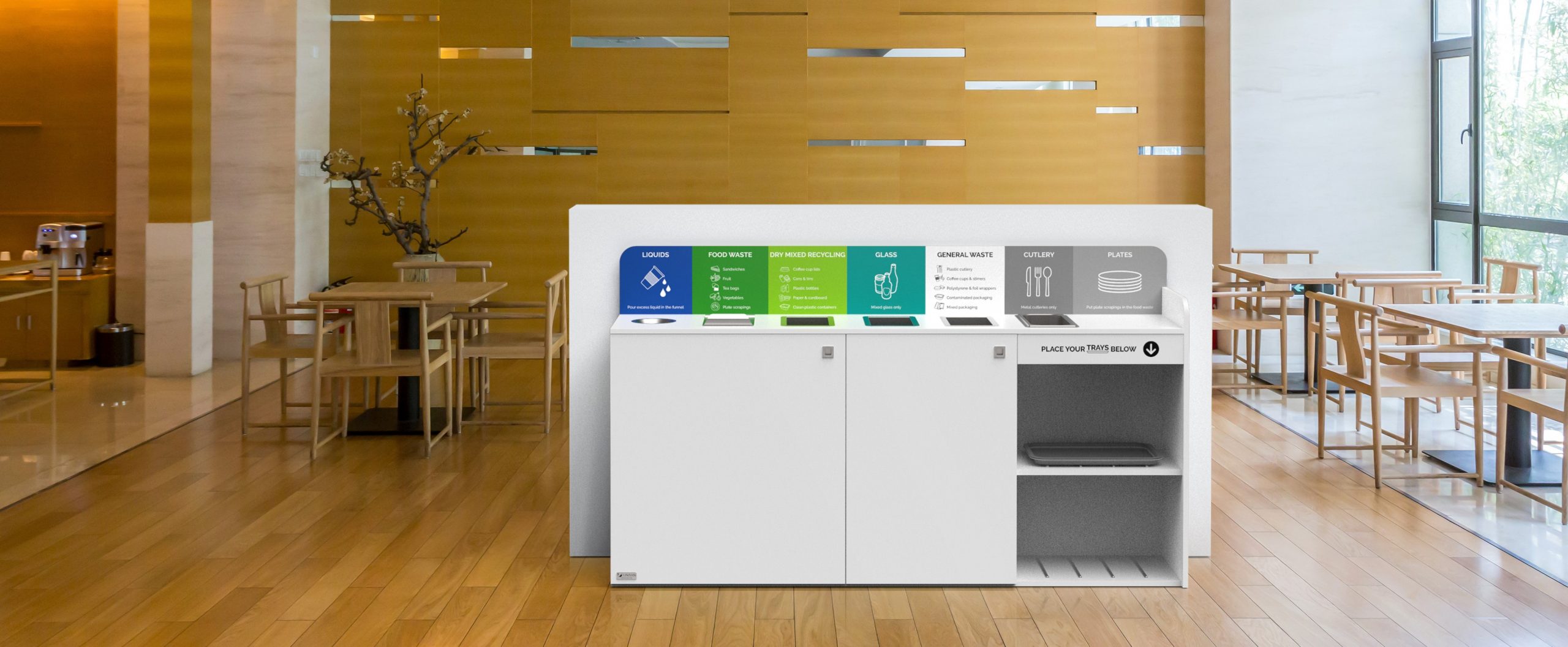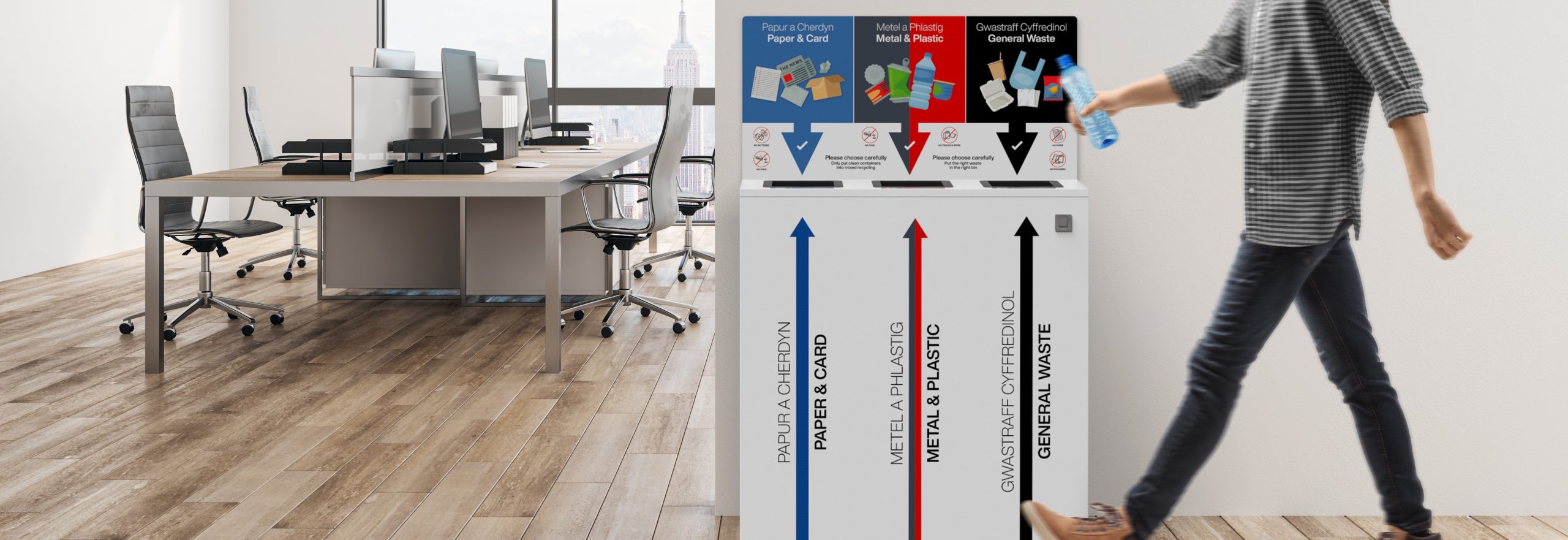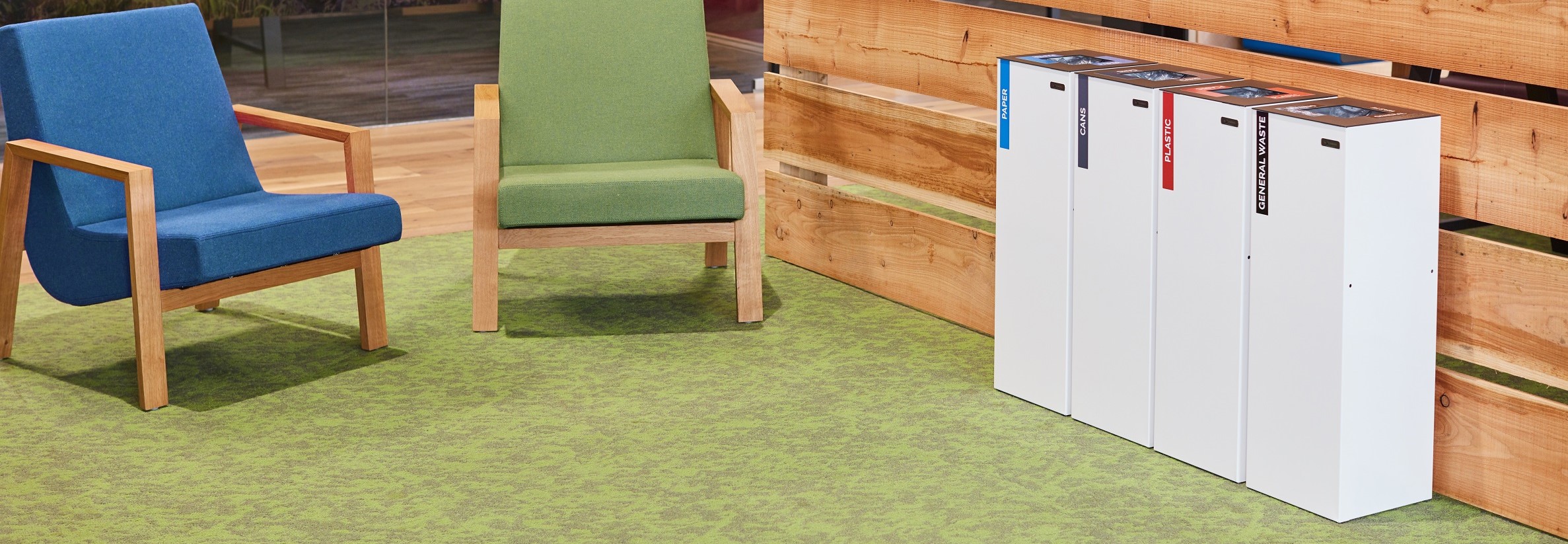Workplace Recycling: Legislation & Government guidelines
When it comes to waste disposal and recycling, businesses have a certain number of responsibilities that they are required to adhere to.
In addition, how you manage waste can be a key contributor to your environmental credentials, helping you and your employees to make a proactive difference to the environment.
In this article we look at the latest UK legislation and government guidelines for workplace recycling and what you can do to improve your practices for the benefit of your business, community and environment.
What you need to know about workplace recycling and waste management
Requirements and pricing for recycling and waste collection for businesses can vary depending on a number of factors, including:
- Where your premises are located: England, Northern Ireland, Scotland and Wales all have slightly different processes.
- How much waste is being collected.
- How often it’s being collected.
- The type of waste and whether it includes hazardous waste (chemicals, asbestos, pesticides, fridges, solvents, batteries). This will determine whether you require a lower tier or higher tier registration.
However, at all times, businesses have a legal responsibility to:
- Minimise waste as much as possible, by prioritising reuse, recycling or waste recovery.
- Complete a waste transfer note for all waste that leaves your premises.
- Check that your waste carrier is registered to dispose of waste.
- Make sure the waste carrier does not dispose of your waste illegally (and report it if they do).
- You must register as a waste carrier if you want/need to dispose of your own waste regularly – you can find out more on the UK Government website.
You can apply to register as a waste carrier in your region at www.gov.uk.
Commercial recycling rules in England
In England you are required to do the following:
- You must check if your local waste carrier is registered to dispose of commercial waste.
- If you need to dispose of your own waste, you must register (penalty fines are £5,000). Registration is free unless you’re transporting waste for another party, in which case it costs £154.
- If you have an upper tier registration, you must renew your registration every three years and it costs £105. You don’t need to renew a lower tier registration.
- You must store waste safely and securely: this includes using suitable outdoor recycling bins to stop it blowing away and waterproof outdoor recycling bins to prevent contaminated runoff.
- Different waste types must be kept separately.
- You’re required to separate recyclable material (paper, plastic and glass) from other waste with outdoor or indoor recycling bins.
- Waste is legally your responsibility until it’s been collected.
- If you hire a private firm for waste collection it will vary depending on the type of waste (animal product, construction etc), but standard rates at landfill as of April 2022 were £98.60 per tonne.
Commercial recycling rules in Northern Ireland
Rules are similar in Northern Ireland, and you can refer to the Department of Agriculture, Environment and Rural Affairs for more information. You are required to:
- Comply with Duty of Care for waste.
- Separate glass, metal, plastic, cardboard, paper and food waste for recycling, and avoid their contamination, for separate recycling collection. You can get individual and clearly labelled paper recycling bins, plastic recycling bins, and outdoor garbage and recycling bins.
- Comply with special requirements for items including batteries, electrical equipment, fridges, air conditioning, vehicles and certain types of packaging.
- You must be a current registered waste carrier with Northern Ireland Environmental Agency (NIEA).
- Work with appropriately authorised waste treatment facilities, to ensure that you only collect acceptable material and that the method of collection you use is correct.
- You must check the waste to ensure there is no non-compliant material present.
- Waste transfer notes must accompany the waste during transport and you must retain these for two years.
- Hazardous Waste must be accompanied by consignment notes and these must be retained for three years.
You can read more on the NIEA Guide.
Commercial recycling rules in Scotland
- Following the Waste (Scotland) Regulations 2012, all businesses have a duty of care to separate waste for recycling. That notably includes glass, metal, plastic and cardboard.
- Food waste should be separated further, specifically from cafes, restaurants and takeaways.
- It’s recommended you speak to specific local authorities to find a service that complies with your Duty of Care.
- No service should offer a single bin solution and if they do you should report them to the Scottish Environment Protection Agency (SEPA).
- You must store waste safely and securely with indoor recycling bins and/ or outdoor recycling bins.
- Waste must be transferred to an authorised collector.
- All waste should include a waste transfer note which you should keep for two years.
- If carrying your own waste you must be registered with SEPA. Registration is free.
- Non compliance can result in a fine of up to £10,000, with SEPA able to issue fixed penalty notices.
Find out more on the Zero Waste Scotland website.
Commercial recycling rules in Wales
The Environment (Wales) Act 2016 and the Waste (Wales) Measure 2010 sought to increase business recycling in Wales. While laws are currently being updated with a view to coming into force in 2023, currently regulations include:
- The Environmental (Wales) Act includes the legal requirement to separate waste and recycle paper, plastic, card, metal, glass, food, electrical items and textiles.
- Currently businesses need to act within the Waste Duty of Care Code of Practice issued under section 34(7) of the Environmental Protection Act 1990.
- You must confirm that the waste hierarchy has been applied (prevent, reuse, recycle, recover, dispose).
We have written more extensively on the unfolding updates to legislation in Wales.
Read more about waste laws in Wales
Reuse, recycle or waste recover with recycling bins for the office
Since 2015 UK waste regulations have required businesses to separate recyclable materials from other waste, in an amendment to the Waste Framework Directive.
The goal was to encourage businesses to do as much as possible to reduce the impact on landfill sites and the negative impact on the environment. In addition, Section 34 of The Environmental Protection Act 1990 specifies a duty of care when it comes to handling commercial waste ensuring its responsible and safe storage and removal.
As part of this, the government encourages businesses to adopt a policy of reduce, reuse, recycle and recover (in that order), before disposing of waste at landfill.
Reducing waste
The gold standard for any business is to reduce waste from the outset by limiting the number of disposable products that you use, whether that’s the crockery in the staff canteen or the packaging that products are placed in. Doing this can also have a positive impact on the day-to-day running costs of your business. There is also a significant push to turn commercial waste into energy wherever possible – another area of investigation for forward-thinking businesses willing to research relevant partners.
Reusing waste
Reusing waste is where items or parts of items are used multiple times for the same purpose as they were originally created. For example, reusing boxes and bags.
Recycling waste with the best indoor recycling bins
Recycling is defined as the action of converting waste into a reusable material where it would otherwise be thrown away. Typically we see this in the form of recycled paper, plastic, tin cans and glass. At Unisan we have a range of indoor recycling bin ideas that can help you to achieve this.
Waste recovery
Waste recovery is where you take components of waste items so that they can be used for other purposes. For example, you might extract wiring from old computer cords or use parts of old computers or cell phones.
What commercial waste items can be reused?
Identifying reusable items within your office or business requires some forward planning, so you can ascertain where to minimise waste products. Obvious areas for long-term reuse might include things like replacing paper cups with glass or reusable plastic ones. However, you can also encourage a culture of reuse within the workplace with systems and practices for reusing more transient items like:
- Binders and files
- Packaging including boxes, packing paper and styrofoam pellets
- Shred used paper for packaging
- Rubber bands
- Paper clips
What commercial waste items can be recycled with the right indoor or outdoor recycling bins?
Whether you’re an office, warehouse, manufacturing facility or commercial kitchen, recycling should be a priority when it comes to waste management. Items that can be recycled include:
- Paper
- Cardboard
- Timber (including old pencils)
- Plastic (including old pens, correction fluid bottles and packaging)
- Glass
- Metal
- Aggregates
- Textiles and carpets
- Tyres
You can also recycle food and organic waste such as fruit and vegetable peelings, grass clippings, wood chippings and tea bags. Depending on what the waste is, this can be done either through composting or anaerobic digestion (AD) waste management, which is a biological process for breaking down organic matter to produce energy and a nutrient-rich biofertiliser.
Each of these items requires specific indoor recycling bins and/or outdoor recycling bins, as well as the appropriate agreements with your waste carrier. It’s important to make it easy for people within your office to separate waste items for recycling with things like clearly defined recycling stations and waste chutes, as well as clearly defined office waste bins whether it’s a three-compartment recycling bin or dedicated plastic recycling bins and coffee cup recycling bins.
What commercial waste items can be recovered?
Perhaps one of the most prolific areas in which businesses can recover waste, is when it comes to electronic equipment/e-waste such as:
- Computers
- Mobile phones
- Refrigerators
- Batteries
- Plugs
- Cords
- Air conditioners
- Kettles
- Toasters
- Lamps
- Torches
- Vacuum cleaners
- Televisions
- Printers
- Cameras
- Shredders
At the moment, the UK is currently one of the largest producers of e-waste in the world and for the most part recycling is exported to other countries.
Most of these items mentioned can be stripped for parts and repurposed. They also contain recoverable materials such as gold, silver, copper, platinum, aluminium and cobalt, all needed to produce new electronic equipment.
The first recommended step is to try to purchase from companies that have gone to efforts to source their materials sustainably and have end of life policies in place for electronics.
Secondly, try to only upgrade electronic items when you really need to, opting for minor repairs and reuse internally wherever possible. You could also liaise with the manufacturer to see if you can return old electronics for credit.
The final solution is to work with a dedicated e-waste recycling facility within your local area.
At Unisan we offer solutions and products outdoor or indoor recycling bin ideas to support all areas of commercial recycling to make waste management easier for you and your team. You can find out more across the website, or for advice on systems, processes and where to start, you can contact us any time.




